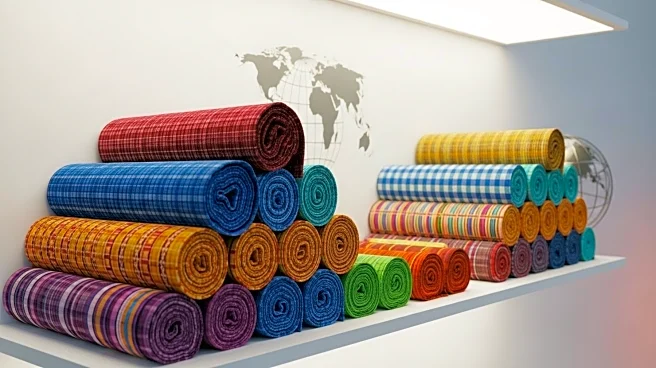What is the story about?
What's Happening?
The textile industry in Tiruppur, India, is facing significant challenges due to US tariffs imposed by President Trump. The tariffs, which were implemented in response to India's purchases of Russian oil, have led to a 50% increase in customs duties on Indian products entering the US. This has resulted in a sharp decline in US orders, with some businesses experiencing an 80% drop in exports. The tariffs have affected the city's economy, known as 'Dollar City' for its strong ties to the US market. Local businesses are struggling to find alternative markets, with many fearing job losses and factory closures.
Why It's Important?
The US tariffs on Indian textiles highlight the impact of geopolitical tensions on global trade and industry. The tariffs have disrupted the supply chain, affecting businesses and workers in Tiruppur, a major textile hub. The situation underscores the vulnerability of industries reliant on international trade and the need for diversification to mitigate risks. The tariffs may also influence other countries' trade policies, as they navigate complex geopolitical landscapes. For the US, the tariffs could lead to higher prices for imported goods, affecting consumers and retailers.
What's Next?
The Indian textile industry may seek government support to alleviate the impact of the tariffs and explore new markets to diversify exports. Businesses may also consider strategic partnerships and investments to enhance competitiveness and reduce reliance on the US market. The situation could prompt discussions on trade agreements and diplomatic efforts to resolve tensions. Stakeholders will be monitoring developments closely, as the industry navigates the challenges posed by the tariffs.
Beyond the Headlines
The tariffs highlight broader issues of trade protectionism and its consequences for global industries. As countries prioritize national interests, industries must adapt to changing trade dynamics and explore innovative solutions to maintain competitiveness. Ethical considerations, such as fair labor practices and environmental sustainability, may also play a role in shaping future trade policies and industry strategies.















